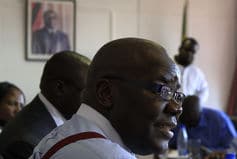Regional Cooperation not on Zimbabwe’s To Do List
Zimbabwe’s recent ban on imports from South Africa suggests that the country has taken action that undermines the Southern African Development Community (SADC) regional integration project. This is because trade is an important element of regional integration. It promotes cross-border and local economic development, and provides the foundation for cross-border cooperation and integration, and the development of good neighbourly relations.







